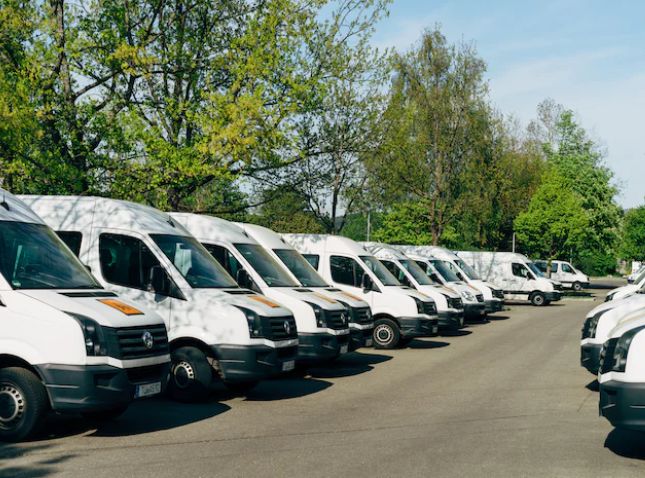A South African mobility tech start-up with intentions to digitize the country’s notorious minibus taxi business has acquired an unknown amount of pre-seed funding from top angel investors.
According to Loop founder Imtiyaaz Riley, this enables the company to roll out geolocation technologies and digital payments.
Riley and Jamie Wyngaard started Loop in 2021. It gives commuters and drivers a place to talk, make payments, plan, and track trips. Soon, it will also let people insure their belongings while commuting.
Transaction Capital believes that the South African taxi business produces approximately R50 billion annually. Minibus taxis are used by around 69% of the country’s households for their daily commute.
Riley, who used to live in Manenberg on the Cape Flats, says that the idea for The Loop came from his own life. For many generations, his family has had close ties to taxi groups in the Western Cape.
Since I grew up in the industry, I’ve known from a young age about the daily problems drivers, commuters, operators, and associations face. “He says, “I’ve wanted to solve these problems for years, and now I have a strong team to help me.”
Riley is motivated by using technology to solve real-world problems. Wyngaard, on the other hand, loves using design thinking to help customers solve their problems. This helps him be focused on results and the future, and it helps him build teams that can quickly adapt to new ideas.
Wyngaard is a strategic planner with experience in biotechnology, media, and fintech. He has also worked as an executive, which is very helpful to Loop. This includes working as the chief community officer for Better, a fintech start-up in Cape Town, and for a bank that only works online.
Wyngaard talked about his childhood on the dangerous Cape Flats in a recent interview with UWC. “my mother was a housewife, and when my father died, we lost all of our comforts.. This forced me to get creative and find ways to keep us living the way we were used to,” he said.
Riley talks about some of Loop’s upcoming changes and confirms the soft launch of a new WhatsApp service that will make it easier for people to find their daily minibus taxis and for drivers to find their passengers. This is being done with the help of taxi associations in the Cape Town city bowl. The first step is to get 2,500 taxis on board.
The Loop allows people to book minibus taxis as shuttle services for one-time trips through an app. The service is used by companies that need to move their staff, event companies that need to move their team and the people who are going to the event, and other groups of persons who need to travel together for any reason. This is an extra way for minibus taxi drivers to make money.” says Riley.
We’re thrilled to be arranging all of this with the assistance of Innovation City, an outstanding community and incubator that has opened many doors for our small start-up.”
Even though the road hasn’t always been easy, Loop has had a lot of help along the way from people who are still important to its success.
“We’ve been lucky to find partners actively helping us change the minibus taxi business. This list includes Jack Studios, Innovation City, Rlabs, Zlto, the Western Cape Taxi Associations, and the SMU Cox School of Business in Texas, USA.
Riley admits that getting money for a start-up is still hard. “South Africa’s help for new businesses in their early stages is getting better, but it can’t be compared to what’s happening in other countries. Access to venture capital funding is hard until the business makes a lot of money, and the government doesn’t do much to help.
Riley explains, “We are aiming to change an industry, and to do so, we need money.”
Our tech and operations teams are great. But to get the word out and reach the heights we want to reach, we need help from investors, mentors, and advisors who share our goals. Loop is trying to make a positive change in our society, and people who think they can add value are welcome to get in touch.
Riley refers to the minibus cab industry as the “backbone” of South Africa’s public transportation system. He admits, however, that for most commuters, the daily trip remains “extremely casual and antiquated.”
It’s not easy getting to and from work. Trip planning is not a reality, and commuters frequently find themselves waiting for a taxi for 20 or 30 minutes. On the other hand, taxi drivers have trouble finding enough customers to meet their daily quotas, so they depend on sliding door operators to call out and find their customers,” he says.
“Commuter insurance is something that we would like to make available to our users. Unfortunately, some risks come with taking a taxi. People who ride these rides should be able to keep themselves and their things safe. Taxis aren’t going away anytime soon, and the business is only growing; thus, the daily experience of the relevant stakeholders in the field needs to be enhanced. Loop is on a mission to fix this.
Loop, on the other hand, just won the MEEK Africa Start-up of the Year award for Innovation and was chosen to show off its products and make a pitch at the Smarter Mobility Africa Summit 2022 in Johannesburg.
Gillion Bosman, a council member in the City of Cape Town, says that Loop’s success shows that Mother City is becoming a growing tech hub in Africa. The success of Loop shows once again that South Africa, and the Western Cape, in particular, has a lot of talented and creative people who just need the chance to grow and use their skills.
 We just launched our WhatsApp channel. Want to get the latest news from the Tech in Africa?
We just launched our WhatsApp channel. Want to get the latest news from the Tech in Africa?



